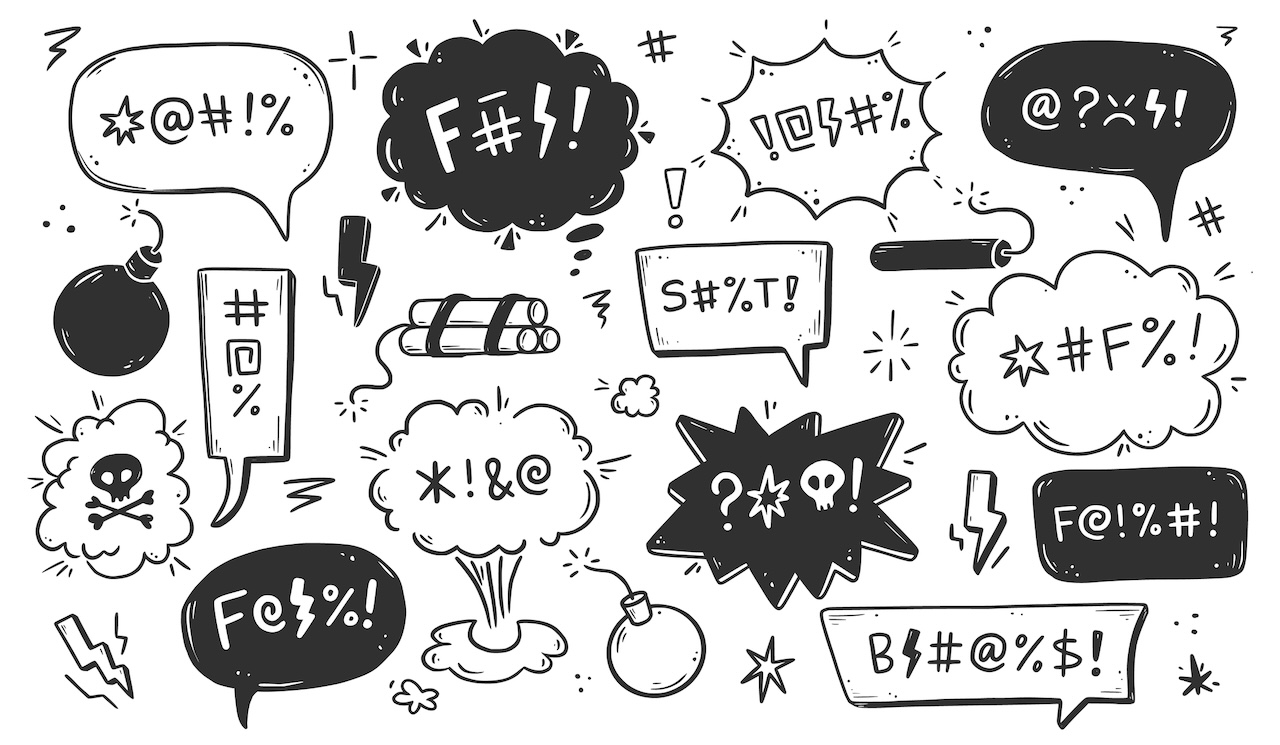Main Street News

Science Says Swearing Can Be Good for Your Health
F#ck. Sh!t. Son of a…
You get the point.
If you’re a frequent swearer, we have some good news for you: it just might be good for your health.
Is swearing a sign of intelligence?
A 2015 study found that the use of swear words is “positively correlated with other measures of verbal fluency… a voluminous taboo lexicon may be better considered an indication of healthy verbal abilities rather than a cover for their deficiencies.”
In the study, participants were asked to list words that start with F, A, or S in one minute, then they were asked to list as many curse words that start with those letters in one minute. According to CNN, “the study found those who came up with the most F, A, and S words also produced the most swear words.”
The correlation here makes sense. It’s reasonable to assume that those who can come up with more overall words that start with those letters will also be able to come up with more curse words that start with those letters as well. After all, curse words are just words.
In the same CNN article, professor emeritus of psychology at the Massachusetts College of Liberal Arts, Timothy Jay, stated that, “Swearing can also be associated with social intelligence. Having the strategies to know where and when it’s appropriate to swear, and when it’s not, is a social cognitive skill like picking the right clothes for the right occasion. That’s a pretty sophisticated social tool.”
Swearing may improve pain tolerance

Richard Stephens, a psychologist and lecturer at Keele University in England, has studied the psychological effects of swearing for years. In a recent review, he and his team of researchers discovered that swearing helps people tolerate pain.
In their 2020 study, Stephens and his colleagues found that people can hold their hand in freezing cold water for longer if they’re repeating a swear word aloud. The folks who were tasked with repeating a neutral word while their hand was submerged in subzero water were not able to stay there as long.
Additionally, in an article with CBC Radio Canada, Stephens stated that people are “better able to tolerate pain while dropping F-bombs than something less vulgar.”
“It does seem to be that the stronger the swear word, the more effect it has,” he said.
So next time you’re pushing through your high-resistance cycling workout, spit out a few curse words of your choice. It just might make you pedal a little harder and a little longer.
Swearing helps us cope with emotions
Similar to physical pain, swearing can also help us cope with overwhelming emotions. Swearing is particularly useful in situations that we have no control over. The act of letting out a string of expletives allows us to release the emotions that the situation has caused.
In an article with Healthline, Dr. Raffaello Antonino, a counseling psychologist and the clinical director and founder of Therapy Central, stated, “the way swearing works, in these circumstances, is as a form of coping mechanism to deal with the emotional consequences of various difficult situations.”
He also stated that, “It’s important to point out that although swearing will not resolve our issues practically, it can help calm and resolve our internal emotional imbalance caused by those experiencing these external issues. In essence, swearing can be an effective short-term emotion-regulation tool.”
In the same article, Dr. Kyle Zrenchik, a couples and sex therapist, stated that, “people often swear when they are stressed, faced with a challenge, or are otherwise experiencing an increase in the activation of their sympathetic nervous system. When people swear, they experience a release, either slight or significant, in physiological and psychological stress.”
Swearing may be a sign of creativity
According to the CNN article, swearing appears to originate out of the right side of the brain, better known as the “creative” side of the brain.
The article states, “‘We do know patients who have strokes on the right side tend to become less emotional, less able to understand and tell jokes, and they tend to just stop swearing even if they swore quite a lot before,” said Emma Byrne, author of ‘Swearing Is Good for You.’
Swearing is healthy … in moderation
However, make sure you don’t overdo it. A study from the Journal of Pain found that people who swear more frequently in daily life “experience a lesser emotional response to swearing in the experiment because of habituation to the stimulus of swearing. As a consequence, these people experience a lesser pain tolerance effect from swearing, compared with people that swear less often in daily life. This implies that overuse of swearing in everyday situations lessens its effectiveness as a short-term intervention to reduce pain.”
The same beneficial effects weren’t seen in participants who admitted to the highest levels of daily swearing, which is defined as up to 60 swear words per day.
In the article with Healthline, Dr. Stephens stated that “overuse of swear words can water down their emotional effect. Used in moderation, swearing can be an effective and readily available short-term pain reliever… however, if you’re used to swearing all the time, our research suggests that you won’t get the same effect.”
Meaning, your F-bombs lose their healing power if you use them too often, so make sure you find the right balance.
If that’s not enough evidence for you to drop an F-bomb here or there, I’m not sure what else will convince you. And if you’re one of those people who already curse like a sailor, carry on (within reason).


